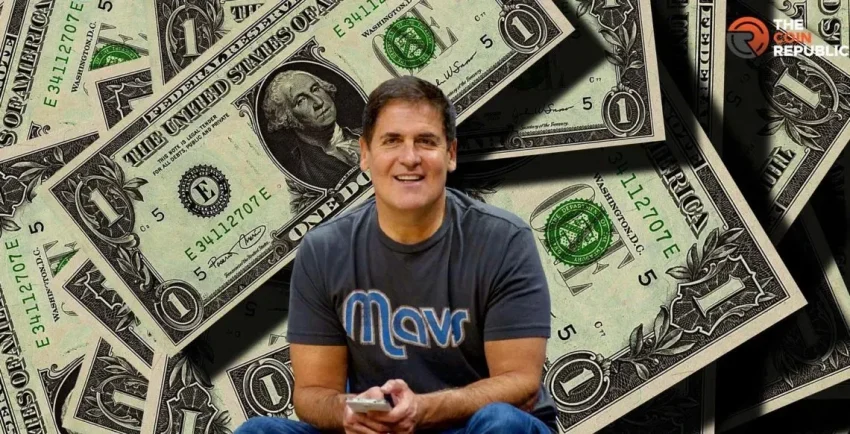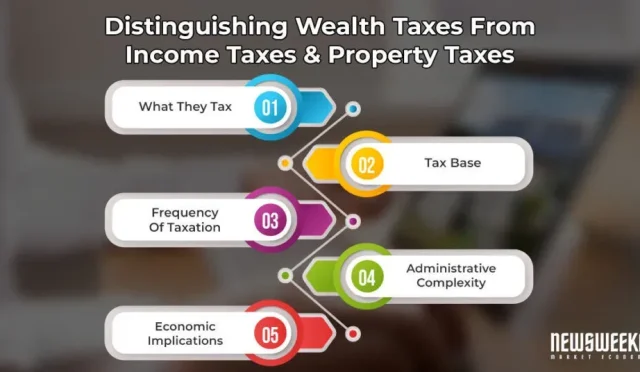Mark Cuban is a vocal advocate for wealth sharing, urging companies to prioritize employee equity alongside traditional CEO compensation. He believes that compassion, rather than greed, can foster a more equitable society, particularly in light of the increasing wealth disparity between executives and workers. Cuban emphasizes that businesses should offer employee stock options that reflect the same incentives given to their CEOs, thereby promoting corporate profit sharing and aligning the interests of all employees. This approach not only recognizes the contributions of the workforce but could also transform the dynamics of business equity incentives, leading to a more committed and motivated team. By addressing these issues, Cuban seeks to spark a movement that redefines how companies reward those crucial to their success, advocating for a future where prosperity is shared more equally.
In his passionate discourse on wealth distribution, Mark Cuban challenges the traditional frameworks of corporate compensation by urging a reevaluation of how businesses reward their employees. He argues for a shift towards embracing practices such as employee equity programs and profit-sharing initiatives, which can mitigate wealth disparities existing in today’s corporate structures. By aligning employee incentives with company performance through mechanisms like stock options, businesses can foster a culture of shared success and collaboration. This not only enhances employee morale but also contributes to a sustainable business model that recognizes and rewards hard work at all levels. Cuban’s vision calls for a holistic approach to business ownership, where the benefits of success are equitably distributed among those who contribute to it.
The Case for Employee Stock Options
Mark Cuban’s advocacy for companies to share their wealth with employees hinges significantly on the provision of employee stock options. This approach not only increases employee engagement but also aligns their interests with the overall success of the business. By offering stock options, companies foster an environment where employees feel valued and invested in the company’s growth, promoting a culture of collective achievement. This model can effectively mitigate the wealth disparity that has grown between CEOs and the average worker, creating a more equitable work environment.
Furthermore, employee stock options serve as a powerful incentive for retention and performance. When employees can directly participate in the financial success of their company, it not only motivates them to perform better but also reduces turnover rates, ultimately benefiting the organization as a whole. Cuban’s approach emphasizes that by providing these equity incentives, companies can enhance their operational output while simultaneously narrowing the income gap that has become a growing concern in today’s economy.
Balancing CEO Compensation and Employee Wealth
The discussion around CEO compensation often brings to light the stark contrast between executive pay and the earnings of average employees. Mark Cuban highlights the need for a balanced approach to compensation structures within companies. He argues that when CEOs receive exorbitant salaries that dwarf the earnings of their employees, it creates a sense of inequity and dissatisfaction among the workforce. Instead of merely focusing on lofty pay packages for executives, companies should consider implementing profit-sharing strategies and equity incentives for all employees, thus fostering a sense of shared success.
Cuban’s perspective suggests that companies should not only reward leadership but also acknowledge the contributions of every employee. By establishing a compensation framework that includes profit sharing, organizations can enhance morale and encourage teamwork. When employees feel they have a stake in the company’s earnings through stock options or profit-sharing schemes, it can lead to increased productivity and loyalty, counteracting the negative effects of wealth disparity.
Corporate Profit Sharing: A Path to Equity
Cuban’s push for corporate profit-sharing initiatives is a response to the alarming trends in income inequality observed over the years. By encouraging organizations to share their profits with employees, he advocates for a shift in the corporate culture that prioritizes equitable distribution of wealth. Profitable companies can and should invest in their workforce, ensuring that employees also benefit from the success they help create. Profit-sharing can serve as a mechanism to redistribute wealth more fairly while also motivating employees to contribute to the company’s success.
The implementation of corporate profit sharing can take various forms, including bonuses tied to company performance or direct profit-sharing arrangements. This approach not only serves to enhance employee satisfaction and productivity but also allows companies to build a loyal workforce. When employees see their rewards linked to their contributions, they are more likely to stay and invest their efforts in the company’s future. Mark Cuban’s emphasis on profit sharing speaks to a broader need for businesses to embrace models that promote equity and shared success in the face of rising wealth disparities.
The Role of Business Equity Incentives
Business equity incentives, such as employee stock ownership plans (ESOPs), are crucial tools in promoting a sense of ownership among employees. Mark Cuban’s emphasis on sharing company success reflects a broader business philosophy rooted in equity incentives. By providing employees with a stake in the company, organizations can foster an ownership mentality that drives engagement and commitment. This approach can significantly improve workplace morale and productivity while addressing the widening income gap between top executives and their teams.
Moreover, equity incentives not only serve to motivate employees but also align their interests with those of the company. When employees have a direct financial interest in their work, they are more likely to go above and beyond, enhancing performance and innovation. Cuban’s call for companies to prioritize equity sharing is a recognition that the future of business success lies in collective growth, ensuring that those who contribute to that success are rewarded proportionally.
Mark Cuban’s Vision for Wealth Sharing
Mark Cuban’s vision for wealth sharing presents a compelling framework for modern corporate America. He asserts that the true measure of a company’s success lies not solely in its profit margins but in how equitably it shares that wealth with its employees. Cuban’s experiences as an entrepreneur underline his perspective; he has seen firsthand the tangible benefits of sharing financial successes with the workforce, which significantly contributes to a positive company culture and increased productivity.
Cuban’s stand against greed, contrasted with his promotion of compassion in capitalism, echoes a growing sentiment among business leaders who believe that meaningful equity sharing is not just a moral imperative but a sound business strategy. By incorporating mechanisms such as employee stock options and profit-sharing, companies can enhance employee loyalty and commitment, unlocking greater levels of innovation and performance that ultimately benefit the organization as well.
Analyzing CEO Pay Disparities
The disparity in CEO pay compared to the average worker’s salary has reached unprecedented levels, sparking intense debate about fairness in corporate governance. As reported, S&P 500 CEOs made 268 times more than the median employee in 2023, representing an alarming trend towards increasing wealth concentration at the top. Mark Cuban’s critique sheds light on the necessity for businesses to reassess their compensation structures and embrace mechanisms that promote equity, such as offering employee stock options alongside CEO salaries.
This analysis points to a fundamental question about the values driving corporate America. If companies want to foster a culture of equity and shared success, they must begin to rethink the traditional frameworks that have created vast disparities. Cuban calls for a shift toward more inclusive practices that recognize and reward the contributions of all employees, thereby addressing the systemic inequities embedded in current compensation practices.
The Importance of Meaningful Profit Sharing
Cuban has repeatedly emphasized that meaningful profit sharing is vital for the sustainability of companies, particularly in the wake of economic challenges such as the COVID-19 pandemic. When companies prioritize sharing their profits with employees, they not only cultivate a loyal workforce but also enhance overall productivity. By having employees invested in the company’s success, businesses can leverage collective efforts to achieve greater outcomes, ensuring that everyone benefits from shared growth.
Additionally, meaningful profit sharing acts as a catalyst for positive change within organizations. It encourages collaboration, innovation, and a strong sense of community among employees. As Cuban points out, when employees feel valued and recognized through profit-sharing incentives, they are more likely to remain committed to the company’s long-term goals. Thus, integrating this model could significantly reshape the corporate landscape towards a more equitable future.
Impact of Wealth Sharing on Company Culture
Implementing a wealth-sharing model has profound implications for company culture. Mark Cuban argues that sharing resources and compensations boosts morale, increases employee loyalty, and ultimately leads to improved business performance. When employees perceive themselves as stakeholders, they develop a vested interest in the company’s success, which fosters a commitment to collective goals. This transformation can turn a conventional workplace into an empowered community where everyone collaborates to achieve shared objectives.
Moreover, a culture of wealth sharing directly combats negative trends associated with wealth disparity. By ensuring that employees reap rewards alongside executives, companies can create an environment rooted in collaboration rather than competition. Cuban’s vision highlights that organizations willing to share their wealth are poised to attract and retain top talent, as individuals increasingly seek employers who prioritize equity and shared success over traditional hierarchical structures.
CEO Compensation and Business Equity Incentives
The conversation around CEO compensation must acknowledge the essential role of business equity incentives in crafting a more balanced corporate ecosystem. Mark Cuban argues for a reevaluation of how top executives are compensated to ensure that their earnings reflect both their performance and the contributions of their employees. By adopting practices that include more equitable compensation structures, companies can mitigate the growing wealth disparity that often leads to unrest among the workforce.
Cuban advocates for a system where both CEOs and employees are rewarded according to their input, encouraging a performance-driven culture that promotes collaboration. Such an approach not only motivates employees but also provides a clearer understanding of each individual’s impact on the company’s success. By integrating equity incentives as a standard practice, organizations can work towards reducing income gaps and fostering a more engaged and motivated workforce.
Frequently Asked Questions
How does Mark Cuban propose companies should address wealth disparity through employee stock options?
Mark Cuban advocates for companies to share their wealth by providing employees with stock options similar to those given to CEOs. He argues that this approach can help reduce wealth disparity and enhance employee commitment and engagement.
What are the benefits of corporate profit sharing as suggested by Mark Cuban?
Corporate profit sharing can lead to increased employee motivation and loyalty, according to Mark Cuban. By sharing profits with employees through stock options, companies can create a sense of ownership and align employee interests with company success, fostering a collaborative work environment.
Why does Mark Cuban believe CEO compensation should be aligned with employee stock incentives?
Cuban believes that the compensation structure should fairly reflect the contribution of all employees, not just CEOs. By offering similar stock incentives to employees, wealth can be more equitably distributed, combatting growing wealth disparity.
How has Mark Cuban’s personal experience influenced his view on business equity incentives?
Cuban’s personal experiences, such as distributing profit from his business sales to employees, have shaped his belief in the importance of equity incentives. He has witnessed firsthand how sharing success can create wealth for employees, as seen when many workers at Broadcast.com became millionaires.
What impact does Mark Cuban think sharing wealth with employees will have on employee commitment?
Mark Cuban contends that sharing wealth with employees, particularly through equity and stock options, will significantly increase their commitment. He suggests that motivated employees are more likely to contribute positively to the company’s success.
What historical context does Mark Cuban provide regarding wealth disparity between CEOs and workers?
Cuban highlights the dramatic rise in wealth disparity, noting that in 2023, S&P 500 CEOs earned 268 times more than the median worker, compared to 30 times in 1978. This stark contrast underscores the need for companies to implement fair compensation practices, including employee stock options.
How does Mark Cuban’s wealth-sharing philosophy relate to broader economic trends?
Cuban’s philosophy on wealth sharing aligns with the larger economic conversation about how corporate profits are distributed. As wealth concentration at the top increases, his advocacy for employee stock options aims to counteract this trend and promote a more equitable distribution of wealth.
| Key Points | Details |
|---|---|
| Advocacy for Wealth Sharing | Mark Cuban promotes the idea that companies should share their wealth with employees through stock options. |
| Critique of Income Disparity | Cuban highlights the growing wage gap between CEOs and average workers, advocating for equal profit sharing. |
| Principle of Compassionate Capitalism | He believes that compassion in capitalism can lead to a greater society rather than greed. |
| Successful Entrepreneurs’ Mindset | Cuban argues that once entrepreneurs reach a certain level of wealth, helping others yields greater fulfillment than money. |
| Examples of Sharing Wealth | Cuban has shared significant profits with employees in his past companies, making many employees millionaires. |
| Contrast with CEO Compensation | Cuban points out that while his approach is to share wealth, reports indicate CEOs earn drastically more than average workers. |
| Tesla Compensation Example | For instance, CEO Elon Musk’s proposed pay package links his compensation to significant increases in company market cap. |
Summary
Mark Cuban wealth sharing emphasizes the need for businesses to equitably distribute profits among their employees. Cuban argues that implementing stock option incentives for all employees can bridge the growing income gap between executives and the workforce. He suggests that companies thrive when their employees share in the benefits of success, which not only fosters loyalty but also enhances overall productivity. By looking at Cuban’s own experiences where many employees benefited financially, it becomes clear that wealth sharing is not just a noble principle, but also a strategic business practice.








